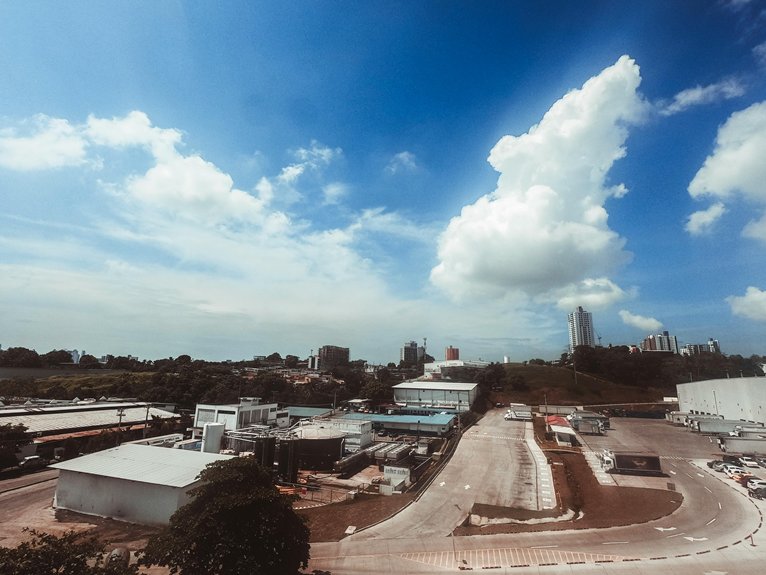Choosing the right roofing system for Sherman factories isn’t just about aesthetics; it requires careful consideration of durability, climate resilience, and long-term costs. With so many options available, making an informed decision can seem overwhelming. By understanding the key factors involved, you can select a roofing solution that protects your investment and keeps your operations running smoothly. Let’s explore what it takes to find the best fit for your factory’s needs.
Understanding the Different Types of Roofing Systems
When selecting a roofing system for Sherman factories, it’s essential to understand the main types available. Roofing material types vary widely, including metal, built-up, single-ply membranes, and modified bitumen.
Each material offers unique benefits, durability, and cost considerations. Equally important are the installation techniques, which influence the roof’s longevity and performance.
For example, metal roofs are often installed with standing seam or corrugated panels, requiring specialized fastening methods. Single-ply membranes like EPDM or TPO are usually adhered, mechanically fastened, or ballasted, depending on the system.
Understanding these roofing material types and installation techniques helps you choose a system that’s compatible with your factory’s needs, ensuring a durable, efficient, and long-lasting roof. Proper installation techniques are crucial, as they directly impact the roof’s resistance to weather damage and its overall lifespan.
Factors to Consider When Selecting a Roofing Material
Choosing the right roofing material for your Sherman factory depends on several critical factors. Material aesthetics matter because you want a roof that aligns with your building’s look and branding. The visual appeal can influence perceptions and overall factory appearance.
Installation complexity is also essential; some materials require specialized skills or equipment, which can increase costs and installation time. You should assess whether your team can handle complex installation or if you need to hire professionals.
Durability, maintenance needs, and budget are additional factors to weigh, but aesthetics and installation ease often guide your initial decision. Selecting the right material ensures your factory remains functional, visually appealing, and cost-effective over its lifespan.
Weather Resistance and Climate Adaptability in Sherman
Sherman’s weather conditions demand roofing materials that can withstand both intense heat and heavy rain. High solar reflectivity helps keep factory interiors cooler during scorching summers, reducing energy costs and protecting equipment.
A roof with good solar reflectivity reflects sunlight rather than absorbing it, making it ideal for Sherman’s hot climate. Additionally, wind resistance is vital, especially during storms or gusty days, preventing damage and ensuring safety.
Choose roofing systems designed to endure strong winds without lifting or cracking. Materials like metal or reinforced membranes offer excellent wind resistance and can reflect sunlight effectively.
Energy Efficiency and Insulation Benefits
A roofing system that reflects sunlight and resists strong winds not only protects your factory but also plays a key role in energy savings. Solar reflective roofs reduce heat absorption, lowering cooling costs during hot Sherman summers.
Combined with effective thermal insulation, these roofs maintain a stable indoor temperature, reducing the need for excessive air conditioning. This synergy enhances energy efficiency by minimizing energy consumption and lowering utility bills.
Additionally, reflective surfaces decrease the urban heat island effect, improving overall environmental impact.
When choosing a roofing system, prioritize options with high solar reflectance and superior insulation properties. You’ll notice a significant difference in your factory’s energy management while contributing to a greener, more sustainable operation.
Durability and Longevity of Roofing Options
Durability and longevity are crucial factors when selecting a roofing system for your factory, especially in Sherman’s variable climate. You want a roofing material that withstands harsh weather, temperature changes, and daily wear without deteriorating quickly.
A well-chosen roof can last decades with the right maintenance, saving you money over time. It’s also essential to contemplate warranty coverage, which reflects the manufacturer’s confidence in the product’s durability. A solid warranty provides peace of mind, covering repair or replacement if issues arise prematurely.
When evaluating roofing options, look for materials known for their resilience, like metal or built-up roofing, and verify the warranty terms. This approach ensures you get a roofing system that offers both long-term durability and reliable protection for your factory.
Maintenance and Repair Requirements
Regular maintenance and prompt repairs are essential to keep your factory’s roofing system in ideal condition. Consistent roof maintenance involves inspecting for damage, debris accumulation, and potential leaks. Addressing issues early prevents small problems from escalating into costly repairs.
Implement effective repair strategies, such as sealing cracks, replacing damaged shingles, or reinforcing weak spots, to extend your roof’s lifespan. Regular inspections after storms or severe weather ensure that any damage is identified swiftly.
Staying proactive minimizes downtime and prevents water intrusion, which could compromise your factory’s operations. Remember, timely repairs not only preserve the structural integrity but also reduce long-term costs.
Prioritize routine roof maintenance and develop a clear plan for repair strategies to keep your roofing system reliable and efficient.
Cost Analysis: Initial Investment vs. Long-Term Savings
While the initial cost of installing a high-quality roofing system may seem significant, investing upfront often leads to substantial savings over time. Proper budget planning helps you weigh the upfront expense against potential long-term savings from lower maintenance and fewer repairs.
Consider financing options that can make the investment more manageable, spreading costs over time without straining your budget. Although premium roofing systems may have higher initial prices, their durability and energy efficiency reduce ongoing expenses.
Environmental Impact and Sustainability Considerations
Choosing an environmentally sustainable roofing system for Sherman factories can considerably reduce your facility’s carbon footprint and support your company’s green initiatives. Opt for roofing options made from recyclable materials, which can be repurposed at the end of their lifespan, minimizing waste.
Additionally, consider eco-friendly coatings that reflect sunlight and lower energy consumption, reducing your facility’s overall environmental impact. These coatings often contain fewer harmful chemicals, promoting healthier manufacturing environments.
By prioritizing sustainability, you also demonstrate your commitment to environmental responsibility, which can enhance your company’s reputation. Implementing a green roofing system not only benefits the planet but can also lead to long-term savings through reduced energy costs and waste management.
Making eco-conscious choices aligns your factory with modern sustainability standards and future-proof your operations.
Compliance With Local Building Codes and Regulations
Ensuring your roofing system complies with local building codes and regulations is essential to avoid costly delays and legal issues. Before installation, you’ll need to secure the necessary building permits, which verify that your project meets safety and zoning standards.
By adhering to these regulations, you guarantee legal compliance, reducing the risk of fines or project shutdowns. It’s important to review Sherman’s specific codes for roofing materials, fire safety, insulation, and structural requirements.
Working with professionals familiar with local rules can streamline the process and ensure all documentation is correct. Remember, non-compliance can lead to significant setbacks, so prioritize understanding and following all applicable codes.
This proactive approach helps you avoid legal complications and keeps your project on track.
Choosing a Trusted Roofing Contractor in Sherman
Selecting a reputable roofing contractor in Sherman can make all the difference in your project’s success. A trusted contractor offers reliable roofing warranties, giving you peace of mind knowing your investment is protected.
Look for contractors with proper certifications, which demonstrate their expertise and adherence to industry standards. Verify their experience in commercial roofing and ask for references from previous clients.
A licensed contractor is more likely to deliver quality work and comply with local building codes. Don’t settle for low bids; prioritize contractors who provide clear warranties and have recognized certifications.
Doing so ensures you work with professionals committed to excellence, ultimately safeguarding your factory’s roof and your long-term operational efficiency.
Conclusion
Choosing the right roofing system for your Sherman factory means balancing durability, climate resilience, and energy efficiency. Metal roofs and reinforced membranes stand out for their weather resistance and reflectivity, helping you save on cooling costs. Work with experienced contractors to guarantee proper installation and compliance. Investing in quality materials with strong warranties will pay off in long-term durability and savings. Make a well-informed choice today to secure your factory’s longevity and operational efficiency. For more information on how to schedule your free roof inspection, call us at (405) 543-2920 or visit us online at Top View Roofing.


















